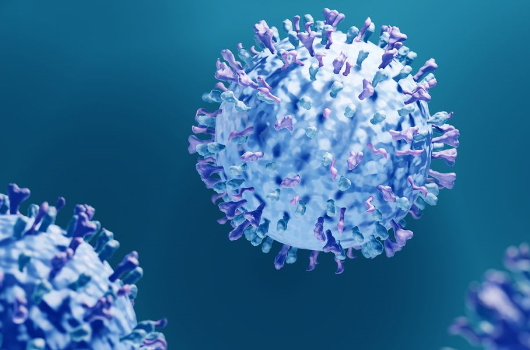Clinical Study
Molecular Diagnostic Testing Reduces Healthcare Use and Costs

Dr. Azia Evans, Dr. Maren Fragala, Dr. Pallavi Upadhyay, Dr. Janie French, Dr. Steven Goldberg, Dr. Jay Reddy • Dec. 3, 2024
Key Summary of Published Article – Utilization of Syndromic Vaginitis Diagnostic Testing Reduces 6-Month Follow-Up Outpatient Service Healthcare Costs—A Real-World Data Analysis
A new study published in Healthcare demonstrates the improvements in healthcare utilization and costs when using syndromic, next-day PCR (polymerase chain reaction) testing for women’s gynecologic health. This study, of nearly 2 Million women in the PharMetrics® Plus database, shows that those who received syndromic, next-day PCR testing for vaginitis had significantly fewer outpatient medical visits and lower healthcare costs in the 6 months following initial diagnosis compared to those who received no diagnostic test. These results may support healthcare providers in decision-making when choosing to use syndromic PCR testing for patients with vaginitis as a way to ensure accurate diagnosis and reduce unnecessary follow-up medical services for their patients.
The Problem
Previous research has shown that many vaginitis patients are treated without diagnostic testing and nearly half of prescriptions for vaginitis given are inappropriate. When patients receive empiric therapy (non-specific treatment without a definitive diagnosis), they are more likely to return for follow-up visits. Better diagnostics for vaginitis can help to target treatment and improve healthcare outcomes for women’s health and reduce unnecessary follow-up care.
The Solution
Advancements in testing and treatment for vaginitis using molecular-based polymerase chain reaction (PCR) tests are now available for vaginitis offering improved diagnostic accuracy. Despite recent recommendations to incorporate PCR-based testing for vaginitis in practice guidelines, the healthcare outcomes and costs related to vaginitis utilizing advanced molecular syndromic-based diagnostics are largely unknown, as there have been limited healthcare economics and outcomes research studies to date.
The Study
This study evaluated healthcare utilization and costs of women who received a syndromic, next-day PCR test for vaginitis compared to patients who had no diagnostic tests. Nearly 2 Million women from the IQVIA PharMetrics® Plus database with a diagnosis for vaginitis. Groups included women who received a syndromic, next-day polymerase chain reaction (PCR) test compared to those who had no test. Total and service-specific healthcare resource utilization and costs were assessed over 6 months. Results show that women who received a syndromic, next-day polymerase chain reaction (PCR) test had significantly fewer outpatient medical services in the 6 months following initial diagnosis compared to those who received no diagnostic test (average of 18 services compared to 21 services). Women who received a syndromic, next-day polymerase chain reaction (PCR) test also had lower healthcare costs during this time, averaging $6,675, compared to an average of $8,742 in the group who received no test (likely due to having more other medical services during the follow-up period).
Conclusion
Advancements in diagnosis and treatment of vaginitis with molecular, PCR-based testing reduced total healthcare costs due to reduced medical services costs in this study. Applications of these findings to clinical care may enable more accurate diagnosis and appropriate treatment of vaginitis – thus reducing unnecessary follow-up medical services for patients and improving patient care.
Related Articles and White papers

Dr. Azia Evans, Dr. Maren Fragala, Dr. Pallavi Upadhyay, Dr. Janie French, Dr. Steven Goldberg, Dr. Jay Reddy • Dec. 3, 2024
Key Summary of Published Article – Utilization of Syndromic Vaginitis Diagnostic Testing Reduces 6-Month Follow-Up Outpatient Service Healthcare Costs—A Real-World Data Analysis
A new study published in Healthcare demonstrates the improvements in healthcare utilization and costs when using syndromic, next-day PCR (polymerase chain reaction) testing for women’s gynecologic health. This study, of nearly 2 Million women in the PharMetrics® Plus database, shows that those who received syndromic, next-day PCR testing for vaginitis had significantly fewer outpatient medical visits and lower healthcare costs in the 6 months following initial diagnosis compared to those who received no diagnostic test. These results may support healthcare providers in decision-making when choosing to use syndromic PCR testing for patients with vaginitis as a way to ensure accurate diagnosis and reduce unnecessary follow-up medical services for their patients.
The Problem
Previous research has shown that many vaginitis patients are treated without diagnostic testing and nearly half of prescriptions for vaginitis given are inappropriate. When patients receive empiric therapy (non-specific treatment without a definitive diagnosis), they are more likely to return for follow-up visits. Better diagnostics for vaginitis can help to target treatment and improve healthcare outcomes for women’s health and reduce unnecessary follow-up care.
The Solution
Advancements in testing and treatment for vaginitis using molecular-based polymerase chain reaction (PCR) tests are now available for vaginitis offering improved diagnostic accuracy. Despite recent recommendations to incorporate PCR-based testing for vaginitis in practice guidelines, the healthcare outcomes and costs related to vaginitis utilizing advanced molecular syndromic-based diagnostics are largely unknown, as there have been limited healthcare economics and outcomes research studies to date.
The Study
This study evaluated healthcare utilization and costs of women who received a syndromic, next-day PCR test for vaginitis compared to patients who had no diagnostic tests. Nearly 2 Million women from the IQVIA PharMetrics® Plus database with a diagnosis for vaginitis. Groups included women who received a syndromic, next-day polymerase chain reaction (PCR) test compared to those who had no test. Total and service-specific healthcare resource utilization and costs were assessed over 6 months. Results show that women who received a syndromic, next-day polymerase chain reaction (PCR) test had significantly fewer outpatient medical services in the 6 months following initial diagnosis compared to those who received no diagnostic test (average of 18 services compared to 21 services). Women who received a syndromic, next-day polymerase chain reaction (PCR) test also had lower healthcare costs during this time, averaging $6,675, compared to an average of $8,742 in the group who received no test (likely due to having more other medical services during the follow-up period).
Conclusion
Advancements in diagnosis and treatment of vaginitis with molecular, PCR-based testing reduced total healthcare costs due to reduced medical services costs in this study. Applications of these findings to clinical care may enable more accurate diagnosis and appropriate treatment of vaginitis – thus reducing unnecessary follow-up medical services for patients and improving patient care.
Related Articles and White papers





